It's Sam Neill weekend on Luke Honey's WEEKEND FLICKS. On Friday, we re-visited Reilly, Ace of Spies (1983), starring Neill as the urbane — if dodgy— British triple agent, Sidney Reilly. In today's post, he plays another leading man: in Gillian Armstrong's beautifully understated period drama, My Brilliant Career (1979), made at the time of the Australian New Wave, a 'movement' (if that's the correct description), which includes Picnic at Hanging Rock (1975) and Breaker Morant (1980), two superb films we covered in previous posts.
My Brilliant Career is based on (Stella) Miles Franklin's novel of 1901. Sybylla Melvyn (Judy Davis) is a feisty, spirited, intelligent nineteen-year-old growing up on a poor farm in New South Wales. Possum Gully. In the middle of nowhere. And she wants to be a writer. Or an artist. The family — once genteel — are down on their luck, with Sybylla's father in debt, near bankruptcy and taken to drink. Sybylla is rescued from her plight and sent to stay at Caddagat, her grandmother's house, a nice middle-class existence with shutters, gardens, decanters, and a verandah. A haven of culture, piano and the finer things in life.
The contrasts between the two extremes are vivid — and brought to life beautifully on camera. A sense of realistic, genuine rural poverty, sometimes found lacking in cinema and television — when compared, say, to the rural arcadia of Elvira Madigan (1967) or the Little House on the Prairie (1974). Little girls running through soft-focused, scented meadows, à la Laura Ashley in smocked dresses. No pretty milkmaids for My Brilliant Career! No Petit Trianon. No milk pails in Sèvres porcelain. Instead, Sybylla’s lips are chapped and sored, cows’ udders are streaked with shit, the clapperboard shacks caked in grime, the late Victorian petticoats layered with dust. Sybylla struggles to rescue a calf trapped up to its chest in clay, mud and slime. The film happens to be set in 1897, but there’s very little nostalgia, if any at all. It is what it is.
On arrival at grandmother’s (Aileen Britton) house, one struggle is replaced with another. We’re in Jane Austen territory. Choices for well-to-do women in Victorian Australia must have been pretty limited. You married well (and ran an efficient household), or you didn’t. That was about it. Or you became an (unmarried) governess. Although women were first admitted to Australian universities in the 1880s, presumably, attendance was a matter of money — and parental acceptance. Out of the question for a girl in Sybylla’s circumstances. That said, choices for upper-middle class men in rural Australia must have been pretty limited too: farming, land management, the army, perhaps; the law or the clergy. But at least there was some sort of a choice.
And so it's Grandmother's duty to marry Sybylla off to a 'catch' for social advancement. Men like Frank Hawden (Robert Grubb), the well-connected English toff, an easy, bog-standard caricature of the English Upper-Class Twit (one of my few quibbles) who's on placement as a jackeroo, for it was fashionable amongst the English upper classes to send their young men off to Australia and South America, to learn about cattle, horses and farm management. But Sybylla, understandably, is more interested in the enigmatic (and rich) Harry Beecham (Sam Neill), a sort of Mr. Rochester, a man introduced, initially, as a womaniser ("where art thou going my pretty maid?") turned brooding, dark, strong and silent type, who doesn't say much, apart from giving Sybylla furtive glances across the dining room table. And that's more or less it. Should Sybylla marry Harry and resign herself to the life of a landowner's wife (and all that comes with it), or should she forsake marriage and devote herself to literature? Selfish, perhaps? Even egotistical? Or, perhaps, more a case of understanding yourself — and your limitations? After all, that, I think, is the key to happiness. Understanding and accepting your faults. For the other side of the grass is always greener, is it not?
Judy Davis and Sam Neill are, of course, fine actors: both terrific, putting in fabulous performances. And it’s a beautifully made, acted, and directed film, also visually aesthetic, with subtle period detail. The film was made in 1979, the heyday of intelligent period drama. And it feels like 1897, unlike say, from the top of my head, The Four Feathers, the made-for-television remake starring Robert Powell, Simon Ward and Jane Seymour, which (as much as I like it) although ostensibly set in the 1880s, will always remain forever 1978 however hard it tries.
My Brilliant Career (1979). It’s a buy. The critics agreed, with William Mootz of The Courier Journal writing “If you've been dismayed by the sometimes glib, often trashy, and frequently just plain inept stuff that has gorged the screen in recent months, My Brilliant Career may well restore your faith.” Judy Davis won a BAFTA for best actress, and the film received an Academy Award nomination for Best Costume Design and a nomination for a Golden Globe Best Foreign Film.
I watched My Brilliant Career (1979) on Daily Motion, as curiously, it doesn’t seem to be available on Amazon Prime Video digital download— although, as you might expect, there’s a (surprisingly pricey) DVD (featuring a ‘brand-new digital restoration’), and a more affordable Blu-ray edition. Note to myself: I must get my act together and save up for a Blu-ray player.
You’ve just been reading a newsletter for both free and 'paid-for' subscribers. I hope you enjoyed it. Thank you to all those of you who have signed up so far.
There are two options on Luke Honey’s WEEKEND FLICKS. Cinema for Grown Ups: ‘Paid-for’ subscribers get an extra exclusive film recommendation every Friday morning, plus full access to the complete archive — currently at film no. 99. We’ll crack open the champers when we reach our 100th film.
It costs £5 a month (or £50 a year) — a bargain, frankly, when you compare it to a few cups of coffee, a packet of semi-legal gaspers, or a pint of beer in the pub. ‘Free’ subscribers get access to the Sunday newsletter, plus the ‘free subscriber’ films in the archive. Either option is a good bet. And when I get my act together, I’m planning to add a spoken voiceover (mine!) for paid subscribers.
I will be back on Friday. In the meantime, sit back, mix a Negroni — and have a relaxing and cinematic Sunday. I hope you enjoy My Brilliant Career (1979) as much as I did.





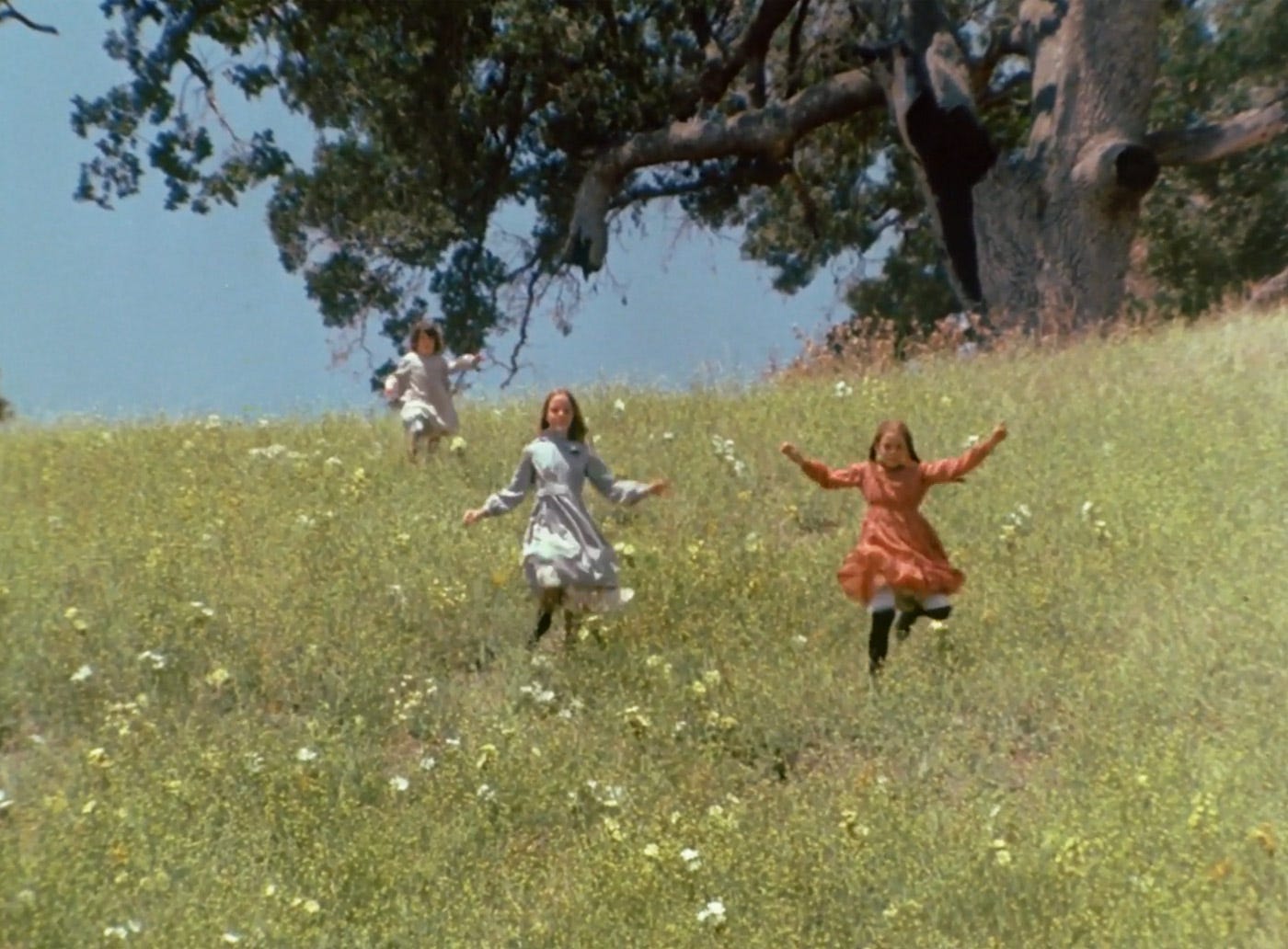
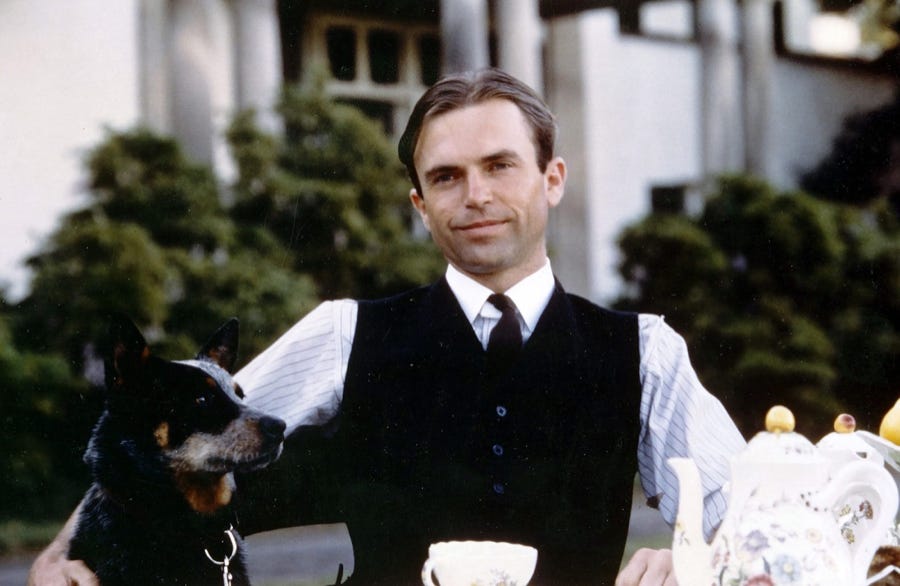
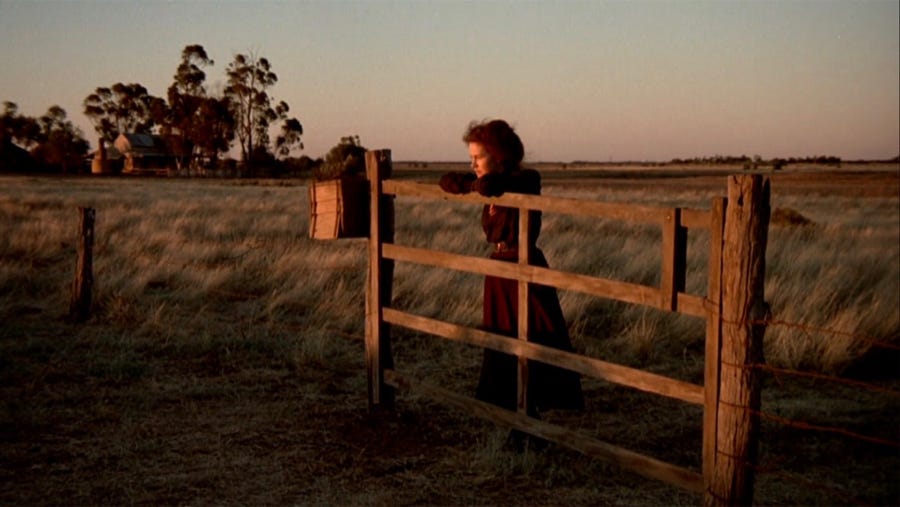
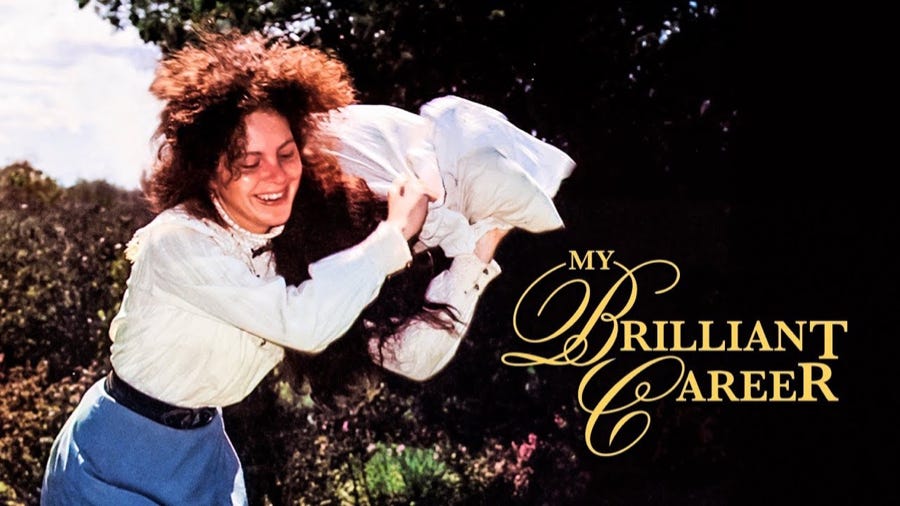
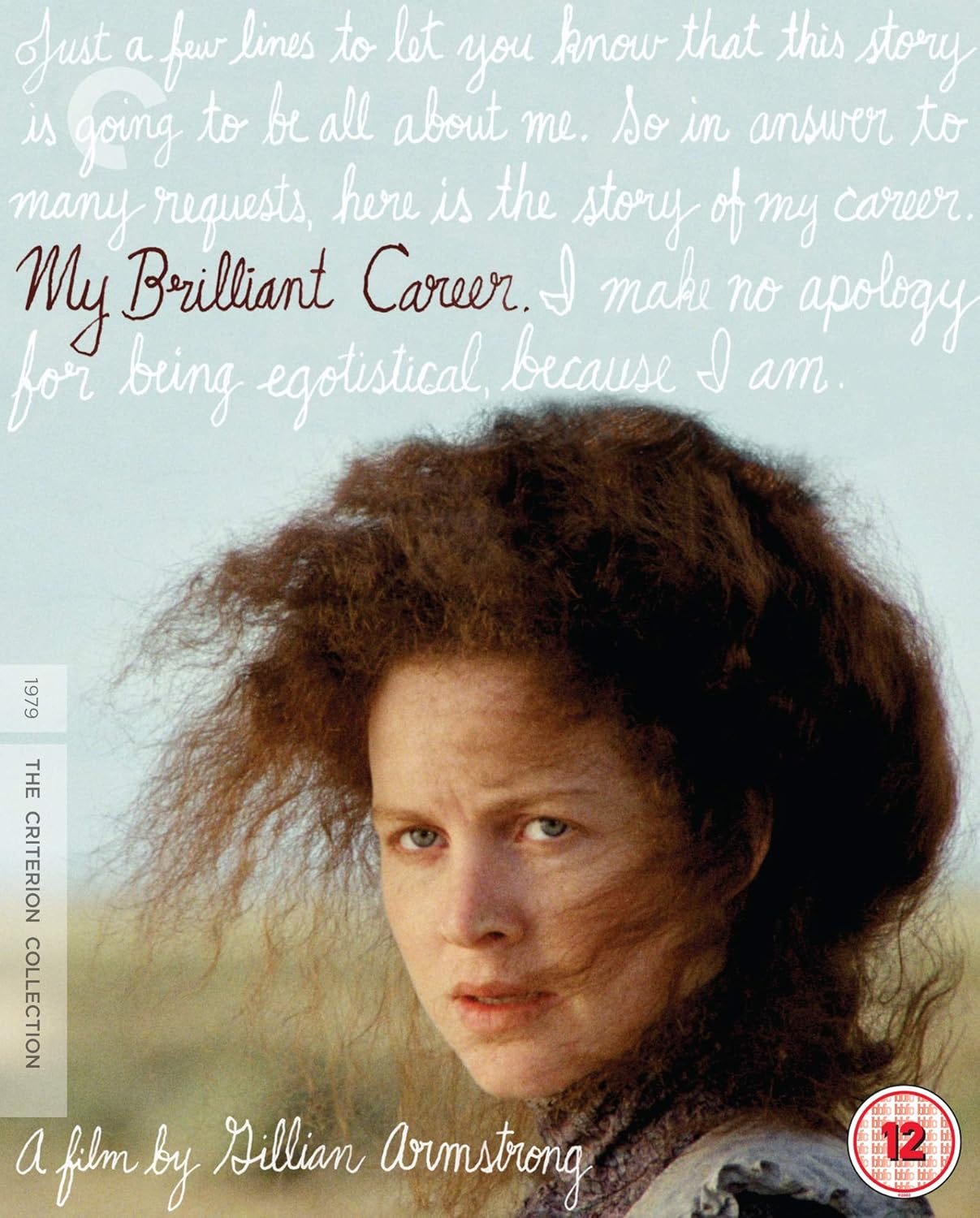
Sam Neill's recent memoir Did I Ever Tell You This? is a treat and a delight. A cheering and warming book to pack to read over the Christmas holidays. The only actor he mentions not liking is Judy Davis.
I blame Jaws, of course, as the reason why films such as this are no longer made…ha-ha!
Fabulous film! And odd how Sam Neill rocketed to stardom, but Judy Davis less so. I guess he was conventionally handsome, while Davis, as so many women in film are, was judged to an unfair degree on her looks. Because she really is a terrific actor, and has been a scene stealer in everything I’ve ever seen her in.
Lovely reminder, as ever, Luke!